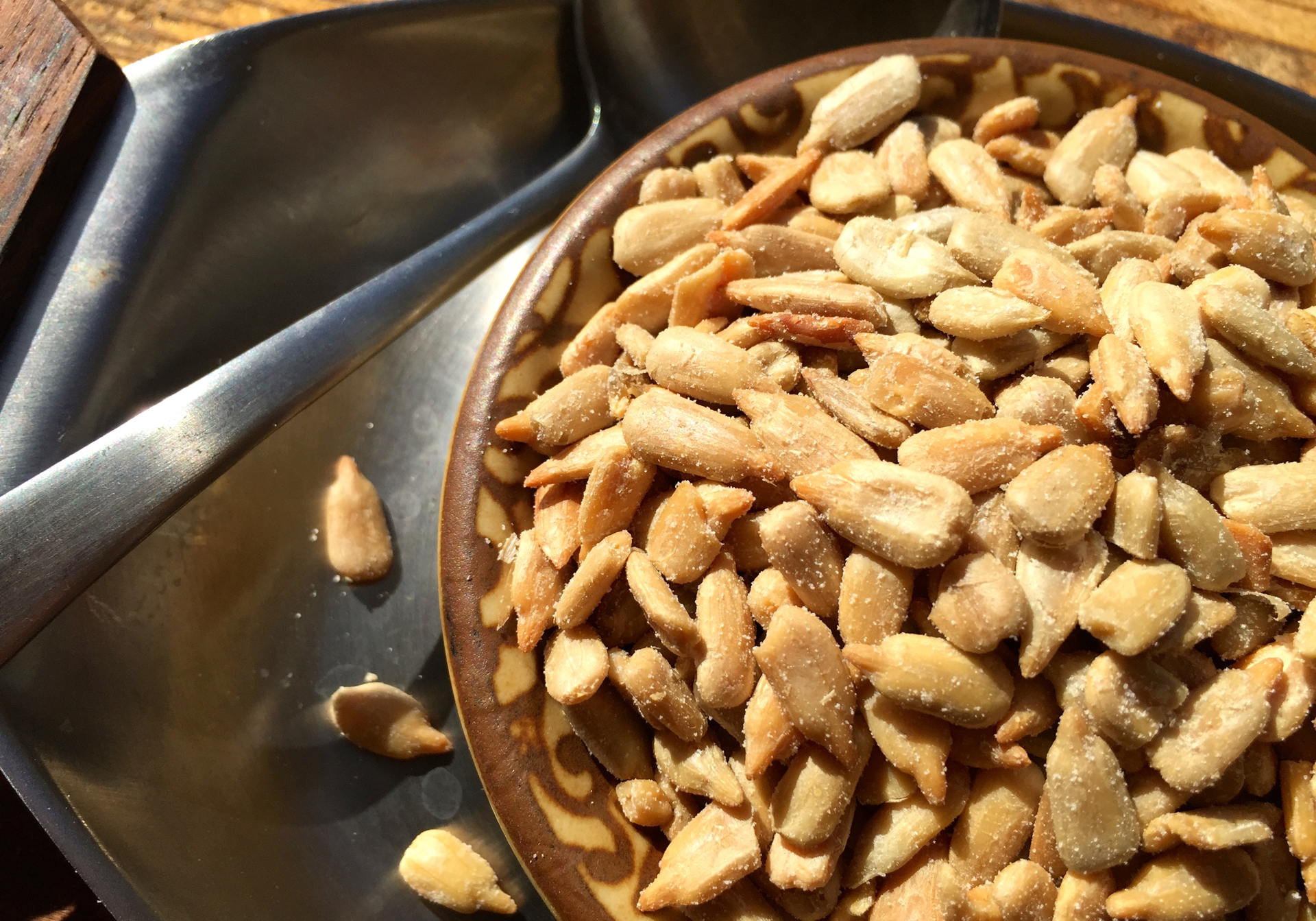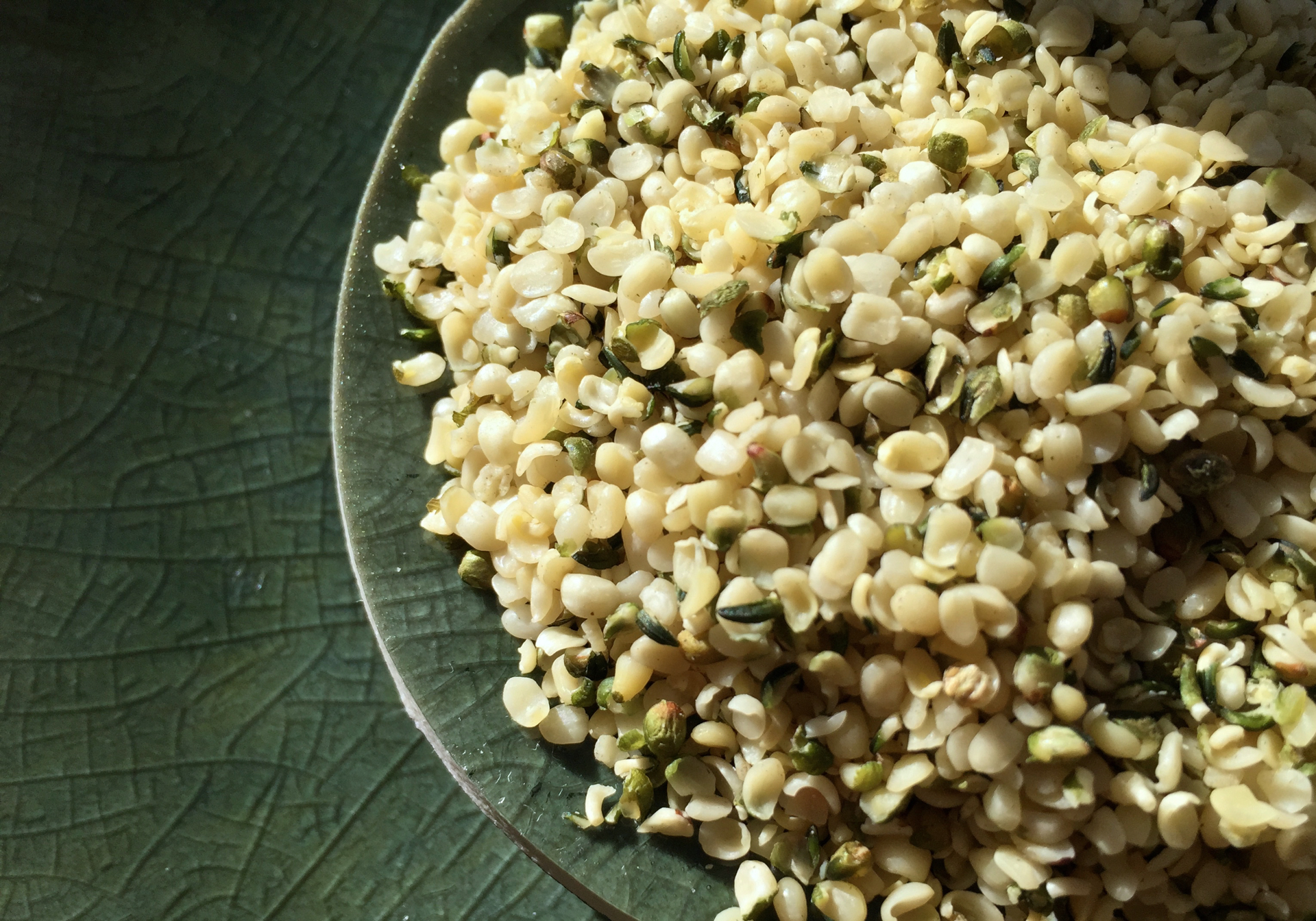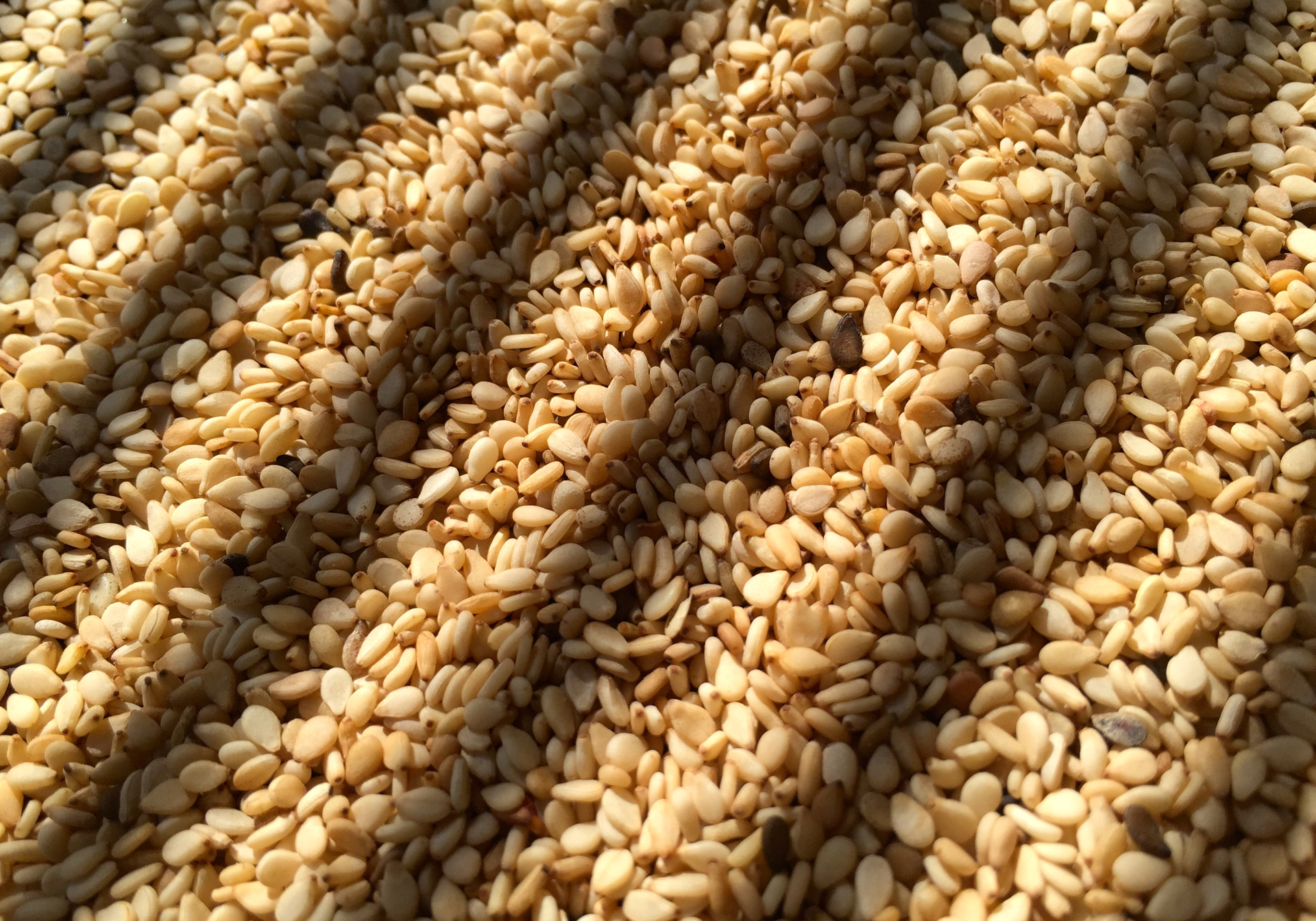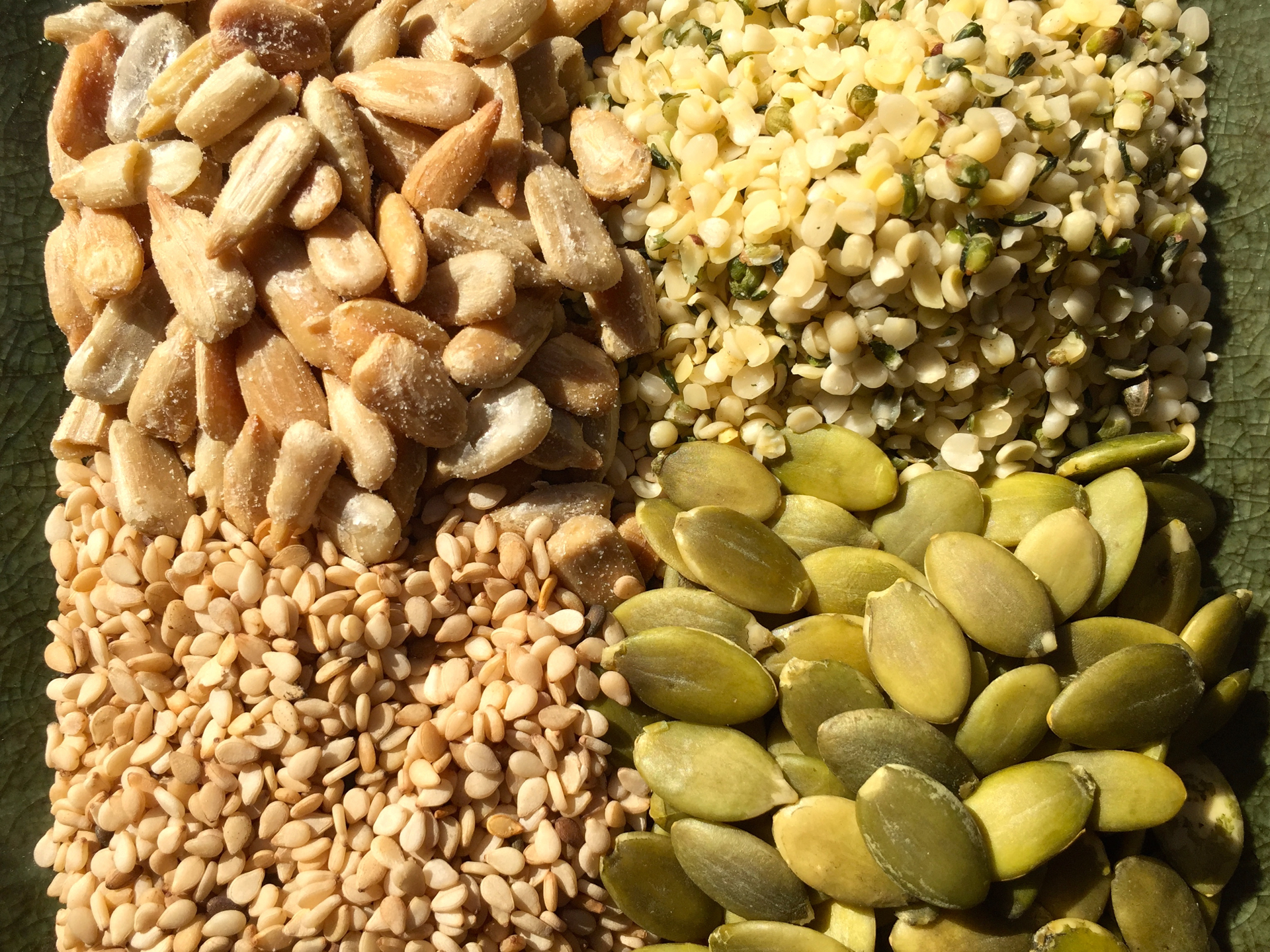
I started tossing seeds on my salads because it reminded me of putting sprinkles on my ice cream. Although eating seeds doesn’t trigger the jolt of joy that chocolate sprinkles do, my grown-up taste buds are delighted by the savory flavors and subtle textures that seeds add to my bowl of greens. My delight factor increased after learning that some of these seeds are jam-packed with nutrients that are often lacking in our diets.
“People forget that seeds are an excellent source of plant-based protein, healthy fat, fiber, vitamins, minerals and disease-fighting phytonutrients,” says Dr. Melina Jampolis, President of the National Board of Physician Nutrition Specialists.
Contrary to popular belief, eating seeds in their raw form is not necessarily more nutritious than eating them roasted or toasted. "Cooking often helps to release or 'loosen' many food ingredients from their natural matrices such that they become more bioaccessible and bioavailable, explains Dr. Jeffrey Blumberg, Director of the Antioxidants Research Laboratory at Tufts University. "If you prefer toasted seeds to raw ones, then you will consume more of these healthy foods and ultimately derive more of these nutrients -- and that is a good thing.”
The good fats that contribute to the seeds’ rich and nutty flavors also jack up the calorie count, so be mindful of the suggested serving size. I chose to highlight the seeds that I think are tastiest, but these are certainly not the only ones with nutritional benefits. Besides using seeds to spruce up your salads, they make a great addition to soups, stir-fries and your morning cereal.
They even taste good on ice cream.
Pumpkin Seeds
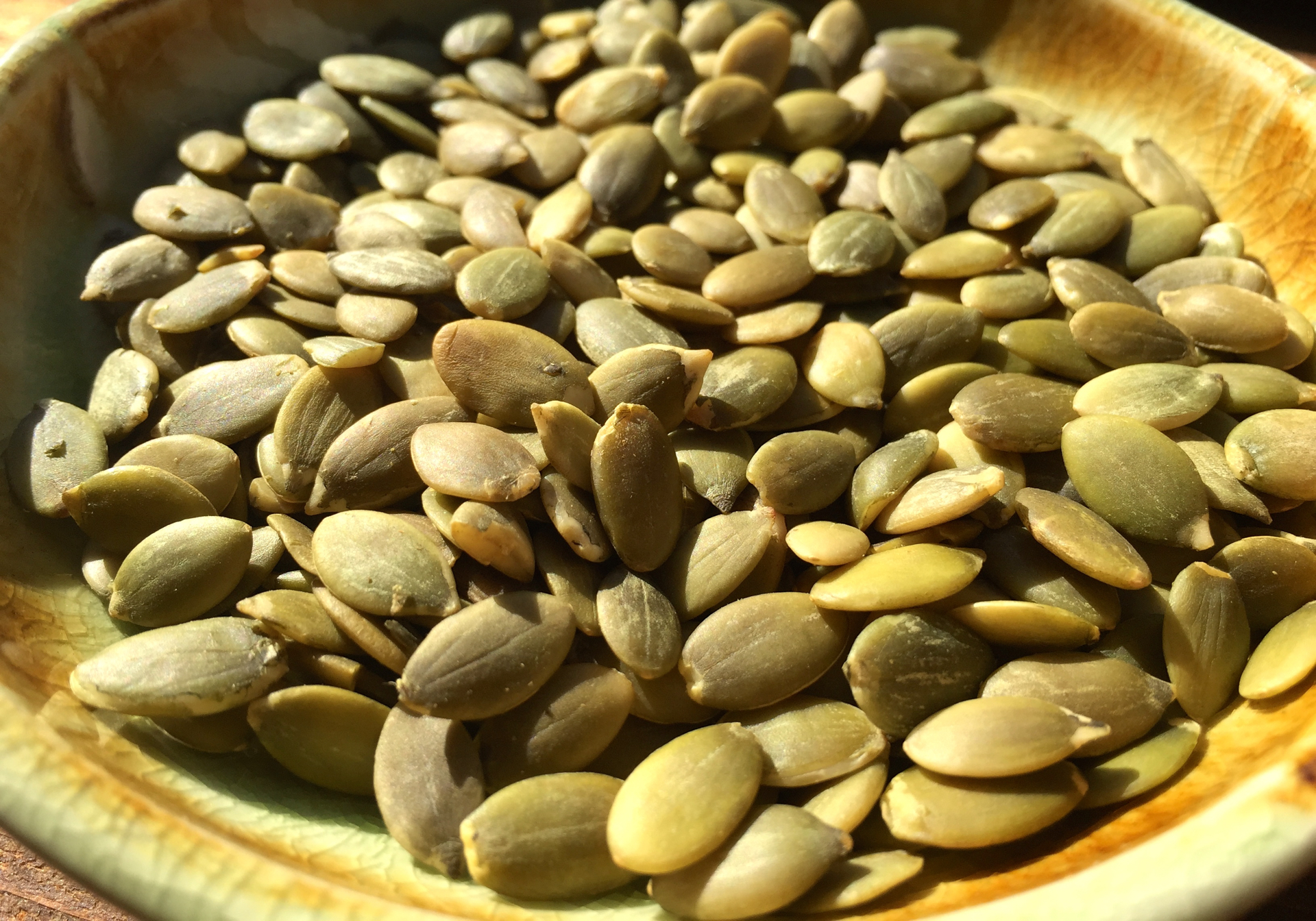
Also known as pepitas, these little powerhouses are loaded with all sorts of essential minerals such as manganese, phosphorus and potassium. They offer a substantial dose of magnesium: almost 50% of the daily intake recommended for adults. Jampolis says this is important because the majority of Americans don’t get the RDA of magnesium that they need. Maintaining an adequate amount of magnesium in our bodies helps to control blood sugar levels and blood pressure, and build bone density. Studies have shown that magnesium may even play a role in preventing migraines. Pumpkin seeds are also rich in tryptophan, an amino acid that our bodies use to make serotonin and melatonin: two hormones that promote relaxation and are key to getting a good night’s sleep.
